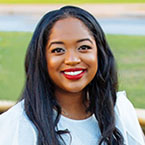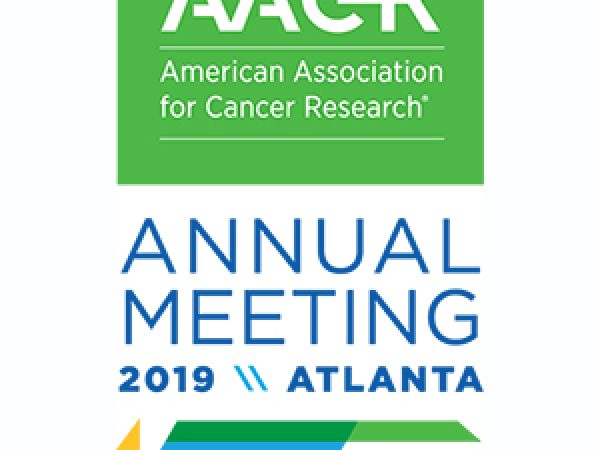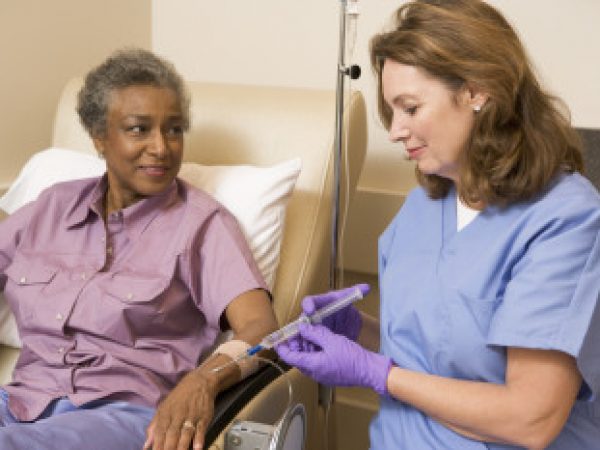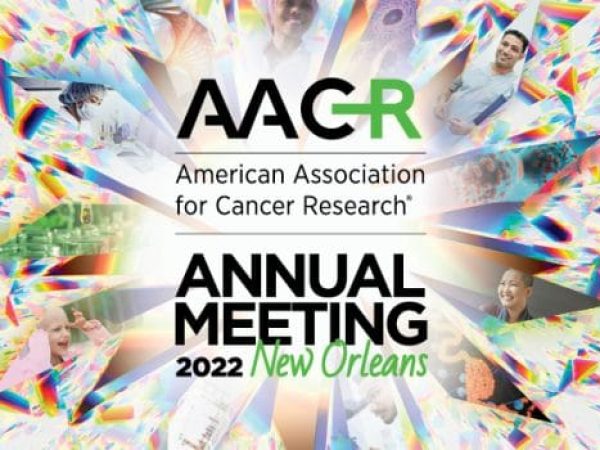Researchers Head to Washington for AACR Early-career Hill Day
Guest post by Bianca N. Islam, MD, PhD
At 1 a.m., I get a page from the nursing staff while working night shift.
“Doctor, patient is complaining of extreme abdominal pain and is hypotensive and mildly tachycardic, with a blood pressure of 80/60 and heart rate of 105. Please advise.” When caring for more than 60 patients on any given night, this call could be the beginning of a very long night.
My patient, just 39 years old, has newly diagnosed colon cancer. “I’m scared, I don’t want to do all this anymore,” she tells me. “I want to be here for my children and grandchildren but I’m just so tired, doc.”

These moments that patients and their families share with me in their darkest hours drive my career as a physician-scientist. While I may not be able to change the prognosis of each cancer patient I meet, I’m empowered by the research advocacy efforts of large organizations such as the American Association for Cancer Research (AACR) calling on our government to increase the budget of the National Institutes of Health (NIH) and National Cancer Institute (NCI). This week, I will be one of 16 early-career scientists taking part in AACR Early-career Hill Day, an annual event in which we ask lawmakers to provide robust, sustained, and predictable funding for cancer research and biomedical sciences.
Cancer is an umbrella term for more than 200 diseases. Cancer is the second leading cause of death in the United States, behind heart disease. Everyone has been touched by it, whether they have personally been diagnosed, or have had a family member or friend with the disease.
The story has been changing over the past decades, with amazing, groundbreaking advancements that have reduced cancer incidence and mortality. Today, we hear more stories of survival. We hear of patients receiving cutting-edge treatments in clinical trials. We hear of patients getting targeted treatment therapies through advancement in personalized medicine. Cancer research offers the opportunity for people to survive. This is why federal funding is critically important. Data from basic science, translational, and clinical research can be transferred to therapeutic options that we can bring to patients in real time.
My first time participating in the AACR Early-career Hill Day in 2017 helped me discover the role of advocacy in cancer science. Physician-scientists are trained to move ideas from one realm and effectively communicate them into other realms. Advocacy pushes us to go beyond the languages of biostatisticians, clinicians, scientists, epidemiologists, and patients, on to government officials. We must make it clear that all the scientific advancements we make are dependent on our national research budget, and keeping that budget strong must be a bipartisan priority.
In the past few years, we’ve had a lot to be grateful for as researchers and advocates. In December 2016, Congress signed into law the 21st Century Cures Act, which was designed to help accelerate medical product development and bring research advances to patients faster and more efficiently. That act provided the NIH $4.8 billion over 10 years for precision medicine and biomedical research, with $1.8 billion of those funds dedicated to cancer research in the “Beau Biden Cancer Moonshot” initiative, named in honor of Vice President Joe Biden’s son, who died of brain cancer in 2015.
Efforts like this have helped us hit the ground running, but as researchers, we can’t stop there. Most of those 200-plus cancer types are still in need of major breakthroughs. Our ability to prevent cancer has improved, thanks to colonoscopy screening, mammograms, and vaccinations for cancer-causing viruses like the human papillomavirus, but so many cancers still evade our diagnostic capabilities. Research funds not only help us create therapeutics and novel clinical trials, but they also help us develop ways to detect cancers sooner or create vaccines to stop cancer from developing to begin with.
After my initial visit with my 39-year-old colon cancer patient, she remained medically stable and we spoke at length about her cancer and the implications it had on her adult children. We spoke about screening prevention and the need for her children to have colonoscopies sooner (it is recommended that people with a family history of colon cancer get a colonoscopy 10 years prior to the age of a first-generation family member’s diagnosis). We spoke about cancer pain and her unwillingness to start long-acting narcotic medications because of the toll opiate addiction already had taken on her family.
We spoke about survivorship, and the side effects of neoadjuvant chemotherapy and the recovery process after surgery. We spoke about the power of music therapy and the benefits of adding a psycho-oncologist to her team of doctors. We spoke about life and what it means to be human.
Cancer crosses socioeconomic lines. It affects all ages, races, and genders. My life calling is to heal, to listen, to advocate, and to make a difference in as many patients’ lives as possible. I plan to accomplish this through making health care accessible to our most vulnerable patients, and through striving to discover cancer prevention and treatment strategies.
This week, I will proudly go to Capitol Hill to ask for strong funding of cancer research. I know that the advances we see in cancer care year after year are just the beginning. With strong funding, we can continue the progress.
Bianca Islam, MD, PhD, is a resident physician scientist at University Hospitals Cleveland Medical Center/Case Western Reserve University. Her primary research interests are in colorectal cancer prevention and the treatment of inflammatory bowel diseases. The views and comments expressed here are her own and do not represent the views of her employer.



